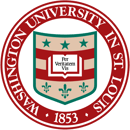The distribution of the Covid-19 vaccine began in Mid-December and has continued throughout the winter months. Although the efficiency of vaccine rollout has varied in states across the US, Dr. Fauci claimed that 70%-80% of Americans should be vaccinated by the end of the summer, giving Americans hope for the return of normalcy. Currently in the US, Pfizer and Moderna are the top two vaccine distributors. Their vaccines use mRNA to activate the immune system to fight against the virus, and it takes two shots for an individual to be fully vaccinated. The FDA just approved the Johnson & Johnson vaccine, which is a single, viral vectored vaccine that activates an immune response by instructing cells to make the SARS-2 spike protein. As of March 5, 2021, approximately 16.3% of the US adult population has received the first dose of their vaccine. I am one of the 16.3%.
Although I am studying on campus this semester, I am originally from Massachusetts. I was able to receive my vaccine through a new Massachusetts policy, that allows individuals who accompany residents who are 75 or older to their vaccinations to obtain their vaccine as well. I took advantage of the two wellness days to fly back to Boston where I accompanied a family friend to the vaccination site.
The biggest vaccination sites in Massachusetts are at Gillette Stadium (distributing the Moderna vaccine) and Fenway Park (distributing the Pfizer vaccine). I went to Fenway Park to receive the vaccine, and when I arrived at the stadium, I was immediately hit with a wave of nostalgia. Ever since I was a child, I have associated Fenway Park with positive and exciting memories. I recalled the noise and energy from Boston sports fans as I walked into countless Red Sox games, and the stands packed full of country music lovers at the summer concerts. Vendors were yelling and passing along food and beverages everywhere you looked, and the crowds made it hard to hear, let alone walk without running into one another. Yet this experience of walking into Fenway differed from anything I had witnessed before. Volunteers sat in front of computers, six feet apart, wearing masks and gloves. There were markings on the floor indicating where to stand in relation to those around you, and sanitizing stations every few feet. After waiting in a line from the ticket booths to the box seats, I made my way over to an isolated table. There sat two volunteers asking preparatory questions for the vaccine, as the nurses prepared the shots behind the bar.
I am incredibly grateful for the opportunity to receive the vaccine, and while being vaccinated at Fenway provided me with a novel experience at the stadium, it reminded me of how much I have to look forward to after the pandemic passes. Although for the time being we will be dedicating our stadiums, malls, and parks to vaccine distribution, this is a reminder that the sacrifices we make now are to give us something to look forward to in the future.



